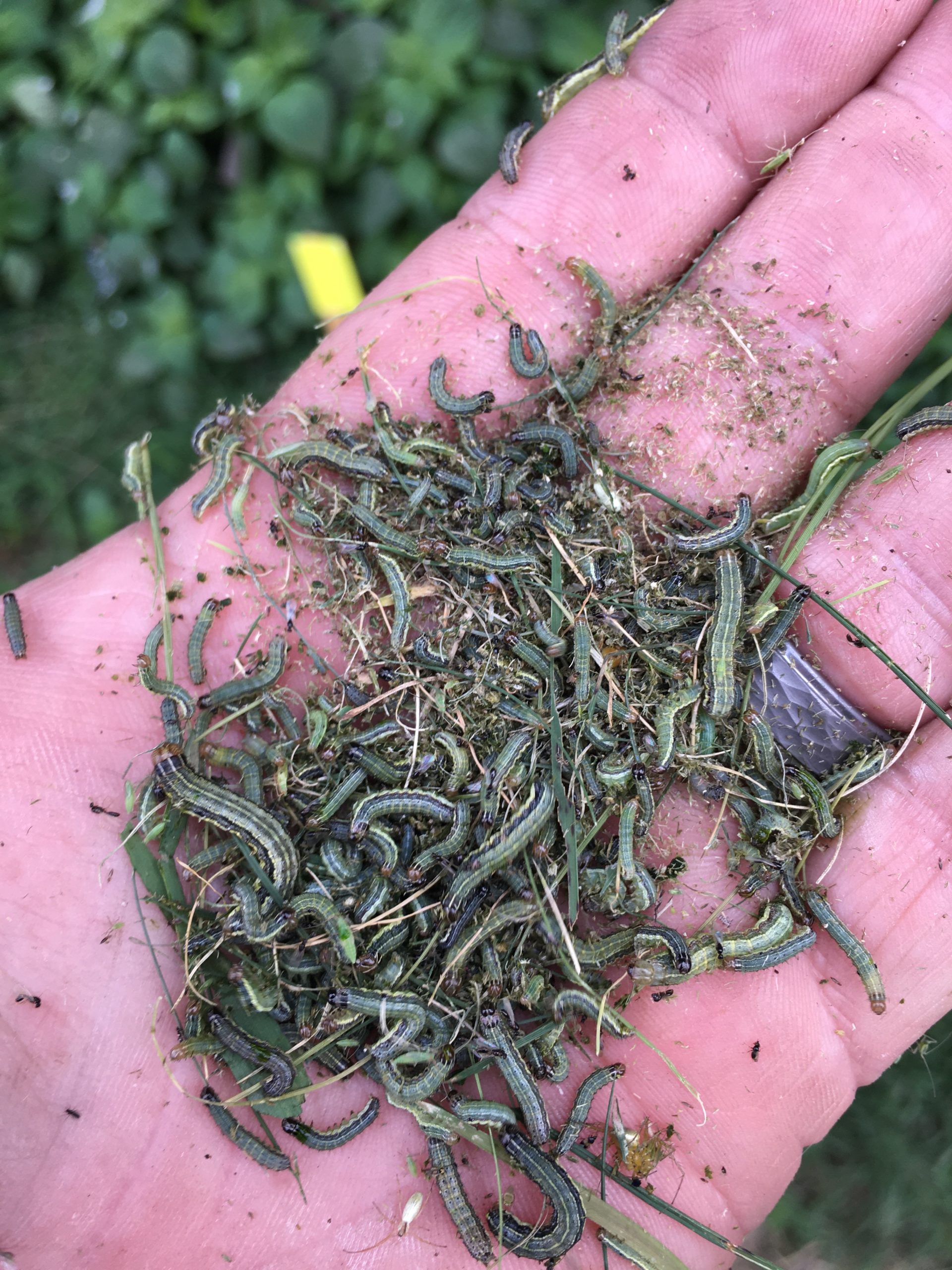Lawrence County farmers should be aware of the impending danger that could affect their fields or pastures. I have had several calls the past two weeks about fall armyworms. After addressing these calls and inspecting the fields by taking fields counts and sweeping the fields, I have discovered massive infestations in some areas of the county. I am catching anywhere from 15 to over 100 armyworms per 10 sweeps. I have not seen armyworm numbers like these since I have worked in the county. According to extension entomologist Gus Lorenz, “This is the biggest outbreak of fall armyworms that I’ve ever seen in my careerâ€. “They’re in pastures, rice, soybeans, and grain sorghum. It’s epic.†The next wave of worms could be unbelievable.
Row Crop farmers as well as cattle producers should be inspecting their fields regularly. Fall armyworms are a voracious caterpillar. The adults lay very large egg masses but when theseinstar larvae hatch, they eat very little. It is not until later, when the instars are older, they start to consume most of the food in their short life cycle. This is why you always hear reports of a field being fine one day and several days later it is eaten to the ground. The armyworms were there, they just weren’t eating a lot.
Fall armyworms have always been a problem in pastures andhayfields but we are seeing infestations in rice this year. There have been reports of rice being eaten to the ground. Extension entomologist Nick Bateman says they are seeing armyworms in flooded rice all through the field. They are eating the rice all the way down to the waterline. Farmers who have June planted rice are particularly susceptible because these plants are young and tender and extremely attractive to the fall armyworm.
Our treatment thresholds are 3 or more per square foot and those with pastures and hayfields need to split the grass and check all the way to the ground. If you are finding treatment levels, you have several options. There are several options of insecticides for forage producers, some have residuals some do not. There is also the option of using a product called Dimilin that will add some residual effect, but this is not an option for crop fields. Dimilin has an 80-day harvest interval which will lead to major harvest issues.
According to Gus Lorenz there will be a Section 18 request submitted to the Arkansas State Plant Board to use Intrepid to help control armyworms in rice. This product is labeled for just about every other row crop, just not rice. California has sought and received this Section 18 for the last 3 years, so this is considered to be the best option.
The takeaway from this is for all producers, cattle, and row crop alike, to scout their field regularly. We might have two months of these waves affecting us. If you are finding armyworms you can call the Lawrence County Extension Office to discuss options. Just because you are finding them doesn’t mean you need to immediately treat for them. If you have any questions,please call our office at 886-3741.
Submitted by Bryce Baldridge
The University of Arkansas System Division of Agriculture offers all its Extension and Research programs and services without regard to race, color, sex, gender identity, sexual orientation, national origin, religion, age, disability, marital or veteran status, genetic information, or any other legally protected status, and is an Affirmative Action/Equal Opportunity Employer.
